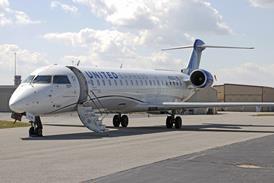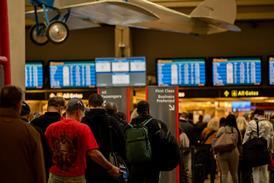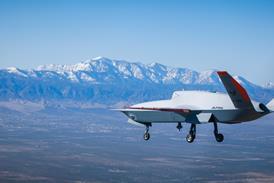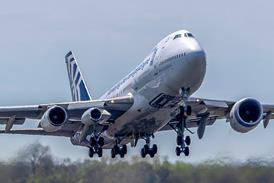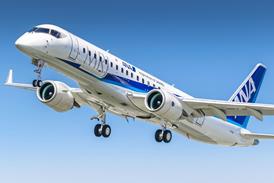MAX KINGSLEY-JONES / BAHRAIN, DOHA, DUBAI AND MUSCAT
As war intensifies in Iraq, the airlines in the Gulf region may be facing short-term uncertainties, but they remain resolute that the conflict will not hurt their long-term ambitions. The region has always boasted one of the world's leading international airlines that sets service and success benchmarks. Twenty years ago it was Gulf Air; now it is Dubai's Emirates.
Gulf Air lost its grip some time ago. Burdened by the image of being a tired, overstaffed airline governed by politics rather than commercial sense, the Gulf's foremost carrier has been dragged from the brink by a new management team that is determined to bring about a return to the glory days of nearly three decades ago.
Emirates, launched in 1985 and unburdened by the costly multi-hub network of Gulf Air, was free to focus its expansion on purely commercial grounds, building Dubai into a strong international hub as well as helping to develop, and benefit from, the growing importance of the emirate as a trading post and holiday destination.
Adding to Gulf Air's woes has been the recent emergence of Qatar Airways - which has established itself as the region's third force. This position was strengthened last year when the state of Qatar withdrew from Gulf Air and threw all its weight behind its home carrier.
Gulf Air's new chief executive James Hogan has already started eliminating bureaucracy and inefficiencies and has placed the focus squarely on passenger satisfaction. He has also called for the communities of Gulf Air's owner states "to embrace Gulf Air as their national carrier and to make it their preferred airline whenever they travel".
Although well aware of the short-term problems that the war in Iraq may bring, the airlines are not letting the uncertainties of the coming months colour their long-term judgement.
"The region was unaffected by the 11 September attacks, and an Iraqi war will not have a major effect," says Qatar Airways chief executive Akbar Al Baker.
Emirates chief director (airline) Tim Clark is similarly optimistic: "Assuming the war is over and done with quickly, 2003 will be another bumper year."
The global alliances have the region in their sights, with Gulf Air in talks to join Star or Oneworld, while Qatar Airways has long held ambitions to link with Star. Emirates' view is that it is doing well enough without the complication of alliance membership, but this could change.
Traffic growth in the region has been averaging double-digit gains in recent years - other than in 2001.The growth has been driven by Emirates, while Qatar Airways has also achieved impressive gains. This has largely been at the expense of Gulf Air, which has been contracting, particularly in response to the 11 September downturn. Gulf Air's foot is back on the gas pedal, but the uncertainty of hostilities in Iraq is likely to slow down business for all the region's airlines in the short term.
Besides the three main players, Oman Air has fairly modest ambitions, and is keen to befriend, rather than alienate, all the players in the region.
Meanwhile, at the international airport in the emirate of Sharjah near Dubai, there are the beginnings of passenger-carrying ambitions. The United Arab Emirates government authorities are setting up Sharjah-based Air Arabia, which will launch in October to "fill a void" perceived by the population of Sharjah and the northern emirates.
| passengers carried (millions) - last 4 years | ||||
| 1999 | 2000 | 2001 | 2002 | |
| Emirates | 4.78 | 5.72 | 6.77 | 8.50 |
| Gulf Air | 5.75 | 5.94 | 5.59 | 5.46 |
| Oman Air | 0.63 | 0.73 | 0.73 | 0.85 |
| Qatar Airways | 1.03 | 1.41 | 1.65 | 2.48 |
| Total | 12.19 | 13.80 | 14.73 | 17.29 |
| Notes: For Emirates, data is FY ending 31 March | ||||
Source: Flight International

